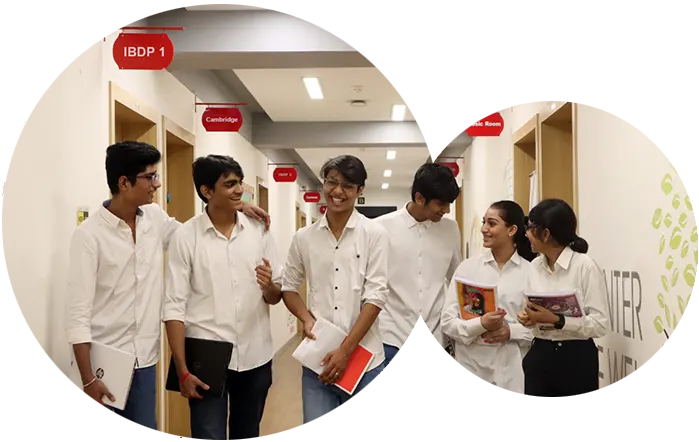download brochure

To Top
IB’s Approaches to Teaching at CPGIS
The International Baccalaureate (IB) programme is an inquiry-based and student-centered educational framework that focuses on developing students' critical thinking, creativity, and international-mindedness. We at CPGIS, help to inculcate the IB’s Approaches to Teaching in the following ways:
In the IB programme, inquiry-based learning is a central approach to teaching and learning. We at CPGIS encourage students to explore and discover information through questioning, experimentation, and problem-solving
Developed in Global and Local Context

We at CPGIS inculcate this approach by giving students group projects and presentations through which we help them develop their communication and social skills. Teachers at CPGIS conduct collaborative classes between subjects which help students understand the collaborative topics in detail. This helps students to enjoy and have fun through this innovative method of teaching in their classrooms.
The IB programme emphasizes the importance of catering to the diverse learning needs of students. Differentiated instruction is addressed at CPGIS, by providing individualized instruction that is tailored to each student's learning style and pace. This is done through differentiated worksheets, activities and peer learning assessments.


The IB programme focuses on developing students' understanding of key concepts and ideas, rather than just memorizing information. We at CPGIS approach this by emphasizing the encouraging students to make interdisciplinary connections, and develop critical thinking skills by solving case studies and evaluating judgements on various global issues.
The IB programme emphasizes the importance of authentic assessment, which measures students' ability to apply their knowledge and skills in real-world situations. We at CPGIS, facilitate our students to participate in performance-based tasks, such as projects, presentations, and essays, which provide students with opportunities to demonstrate their learning in meaningful and relevant contexts.








